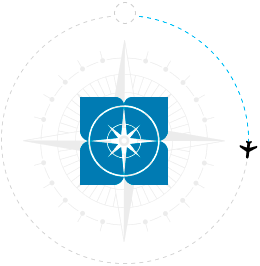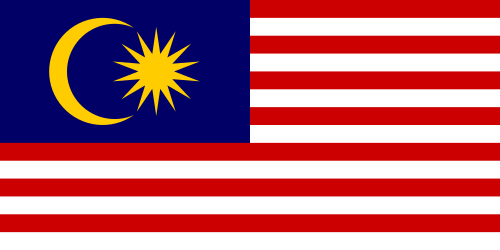



The location of Malaysia on the southernmost peninsula of Asia and part of the island of Borneo has created very favorable conditions for the country to gain significant strategic importance. Since ancient times, major sea routes passed through here. Archaeologists claim that people lived in these territories as early as the 10th–6th millennia BCE. The first states on the Malay Peninsula appeared in the 2nd–3rd centuries. From the 8th to the 14th century, Indonesian states ruled here. Around 1400, the Malacca Sultanate was formed — a Muslim state of the Malays. Since 1511, these lands were colonies of different countries — Portugal, the Netherlands, Great Britain, and Japan. From 1957, the path to becoming an independent state began.
Today, the world knows this country as a magical tropical paradise with an amazing cultural blend. Booking a tour to Malaysia online is worth it to enjoy this fascinating mix of Asian cultures and peoples, vibrant nature and huge metropolises, ancient architecture and modern buildings.
Some official data
Capital: Kuala Lumpur
Official language: Malay
Currency: Malaysian Ringgit
Religion: Islam
Reasons to buy a tour or package to Malaysia and how to search and book tours online
The country is developed and wealthy. The main focus is on industry and agriculture. However, since the 1970s, the government began paying more attention to tourism after seeing how positively it affects the economy of other countries. The country has great potential in this sector, so it developed rapidly. The number of tourists increases every year.
You should buy a tour to Malaysia for:
Incredible nature. The diversity of landscapes is stunning. You can visit jungles, climb mountains, admire scenic coastlines. The country has several national parks open for visiting:
Taman Negara — the most popular, featuring plains, mountains, caves, forests, valleys, and water bodies with various fish species to catch.
Endau-Rompin — home to rhinos, a region with wild forests.
Kinabalu — perfect for climbing lovers, with one of the highest points in Southeast Asia.
Niah — a protected cave area where prehistoric humans once lived.
Gunung Mulu — another place with diverse landscapes including peat swamps, jungle-covered hills, and mysterious caves.
Bako — offers curious cliffs, cozy bays, and beautiful fields.
Paradise beaches. The coastline landscapes enchant with their exoticism. For beach relaxation, the Malaysian islands are best: Tioman, Langkawi, Penang, Pangkor, Redang, and the famous Borneo. You’ll find both well-equipped beaches and completely undeveloped ones, crowded and deserted. There are stretches of white, golden, and black sand. The rest can be complemented by a variety of active entertainment.
Amazing underwater world. This experience will give you vivid memories. Diving in Malaysia is one of the most popular activities. The waters of the South China Sea, Sulu, and Sulawesi are home to many diverse animals and the underwater scenery captivates with its beauty. You can encounter turtles, rays, octopuses, whale sharks, lobsters, giant mollusks, over 200 species of fish, and others. Among divers, spots with sunken ships and a location with a huge single coral are popular.
Ancient sights. The country uniquely combines several cultures and religions, which reflects in its architecture. Here you will see ancient Hindu and Buddhist temple complexes, magnificent sultans’ palaces, beautifully ornate Muslim mosques, Christian churches, and Dutch forts. Each building, sculpture, and complex contributes to the vivid and diverse image of Malaysia.
Futuristic atmosphere. Next to ancient architecture are ultra-modern buildings. The most famous among them are the Petronas Towers, 452 meters tall, Menara Tower, and the Langkawi Sky Bridge, built over a picturesque gorge reaching a depth of 700 meters.
A weekend tour to Malaysia is not enough to fully enjoy the country. Even a long vacation won’t be enough to visit all the interesting places. Besides the reasons mentioned above, there are also a colorful culture, local festivals, ancient tribal villages, and diverse cuisine. To get the most out of your holiday in Malaysia, you need a lot of time. However, you can start with at least one week.
✔️ Types of entertainment by regions
Today the country pays great attention to tourism development. There are several main directions:
✔️ Climate and seasons
Malaysia is located in the equatorial climate zone. It is a hot and sunny country, only slightly cooler in the north. There are no distinct tourist seasons; you can visit anytime. Temperatures range from +23 to +33 °C (73–91 °F). On the east coast, rainfall occurs from November to February; on the west coast, from April to May and from October to November. To avoid monsoon rains, it is better to vacation on the east coast from March to September, and on the southwest coast from November to March.
✔️ Currency
The national currency is the Malaysian Ringgit. It is best to bring US dollars — they are easy to exchange and often accepted for payment, though at a poor rate. Currency exchange is available at banks, special exchange offices (found in hotels, airports, large shopping centers, and central train stations), and private exchangers — the latter offer the best rates.
MasterCard, Visa, and American Express cards are accepted almost everywhere, except in remote non-touristic areas. Foreign cards are often blocked there, so it’s wise to have several options as backup.
✔️ Main holidays
Colorful celebrations in Malaysia are one reason to plan your trip to coincide with some event or festival.
Catholic Christmas and the European New Year have become an integral part of Malaysian life. Cooperation with Western countries and the large number of foreigners living in the country have influenced the popularity of these holidays. Preparations usually start in mid-December; streets become a winter fairy tale, holiday songs fill the air, and store windows are festively decorated. New Year is given more attention — on the night of December 31 to January 1, bright parades and other interesting events take place.
Chinese, Muslim, and Indian New Years are also celebrated, with timing depending on their religious calendars.
In spring, in May, several interesting events take place:
Buddhists celebrate Vesak — the day Buddha was born, enlightened, and attained nirvana. Believers decorate temples, meditate, and make offerings.
At Sabah Fest, you can immerse yourself in Malaysian culture. Various ethnic groups showcase performances, traditional dances, music, national costumes, dishes of Malaysian cuisine, and much more.
At the end of May, the Kaamatan harvest festival begins, lasting a month and including beauty contests, dance competitions, ritual ceremonies, music shows, and thanksgiving ceremonies.
The country hosts vibrant events of different types.
In June, you can attend the Rainforest World Music Festival — a festival of folk music.
July delights with a flower festival in the capital.
In August–September, the Chinese Lantern Festival takes place, an enchanting and romantic event where the sky lights up with thousands of lanterns, creating an atmosphere of magic and fairy tale.
Visiting at least one festival will brighten your trip and help you better feel the spirit of the country.
✔️ Medicine
Entry rules for Malaysia state that tourists must have insurance. But this is important not only for compliance. Having a policy guarantees medical assistance within the agreed coverage. Since unforeseen health issues are more likely abroad, insurance provides peace of mind for your health and budget.
✔️ Useful tips
When traveling abroad, it’s important to know local customs and tourism hacks to make your trip more comfortable.
If you plan to travel around the country, renting a car is the most convenient way. There are both international and local rental companies. Malaysia drives on the left side. To rent a car, you must be over 21 years old, have at least 2 years of driving experience, and hold an international driver’s license.
Night markets are the best places for shopping — the heat is gone, prices drop closer to closing, and sellers are more open to bargaining.
Free Wi-Fi is common in many places, and mobile internet coverage is wide. You can buy a local SIM card for mobile data.
In Muslim-majority regions, food establishments may be closed during daytime in the holy month of Ramadan.
Public dress codes are conservative — avoid revealing clothes. Topless sunbathing on beaches is prohibited. Sacred sites require modest clothing, and shoes must be removed before entering mosques.
Taxis are inexpensive; use official providers. Payment can be by meter or pre-paid. Bicycle rickshaws are common in some areas.
Malaysian street food is delicious and of high quality, featuring seafood and fruits. Try traditional dishes as well.
Keep an eye on your valuables and avoid carrying large amounts of cash. Malaysia is relatively safe, but caution is advisable. Beware of monkeys — they are notorious for stealing cameras and phones. If feeding them, make sure valuables are out of reach.
Tipping is uncommon; service charges are included in bills at hotels and restaurants. Elsewhere, you can tip 5–10% if you wish.
Drink bottled water.